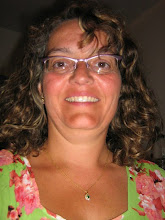
Friday I had the opportunity to meet with the Deaf Community here in Bujumbura. The photo shows some of the group I met with. On the far left is Fabien; he is the leader of the Burundian National Association of the Deaf. On the far right is Lucky who is hearing and studied in South Africa. He introduced me to the BNAD members. To my left and right two down, are the interpreters who have asked me to return later this month and talk a little about the Code of Ethics that I follow to help them develop their own. Right now they do not follow anything. They just try their best but have no training. They would love to have an interpreter come for three months and give them some intensive training. Know anyone who might want to do that?
I had an engaging conversation with the members of the BNAD. I talked about the drumming and robotics program at MSD. I also mentioned the exchange program with Japan and they would love to have one with us too. I told them that Deaf children in Canada can be educated for free until they are 21 years old at secondary school. I talked about how Canada has Deaf lawyers, teachers, principals, politicians, and other professionals. They were so impressed. I talked about the Networking Days that the COT team holds and how we bring together Deaf and Hard of hearing students from the province along with school staff and parents. They LOVED that idea. Here there are two schools: one in Buju and one in Gitega. I wish I had known earlier this week when I was in Gitega as I would have loved to have visited.
I went out for lunch with Fabien and Lucky after my morning with the community. I felt brave enough to ask Fabien about what happened to the Deaf people during “the Crisis” as it is often called—the killing of Tutsis and Hutus in 1993/4. I was pretty certain that I would not offend him if culturally I could ask such a direct question. I was right. I was also right about what I thought his answer would be. When people came to the place where the Deaf people were, they did not identify one another when asked who was Hutu and who was Tutsi. They were Deaf first and chose to stay together and not turn each other in. While other friends and neighbours were killing each other, this minority group did not. Maybe the Deaf Community could teach the rest of Burundians how to live in peace?
I had an engaging conversation with the members of the BNAD. I talked about the drumming and robotics program at MSD. I also mentioned the exchange program with Japan and they would love to have one with us too. I told them that Deaf children in Canada can be educated for free until they are 21 years old at secondary school. I talked about how Canada has Deaf lawyers, teachers, principals, politicians, and other professionals. They were so impressed. I talked about the Networking Days that the COT team holds and how we bring together Deaf and Hard of hearing students from the province along with school staff and parents. They LOVED that idea. Here there are two schools: one in Buju and one in Gitega. I wish I had known earlier this week when I was in Gitega as I would have loved to have visited.
I went out for lunch with Fabien and Lucky after my morning with the community. I felt brave enough to ask Fabien about what happened to the Deaf people during “the Crisis” as it is often called—the killing of Tutsis and Hutus in 1993/4. I was pretty certain that I would not offend him if culturally I could ask such a direct question. I was right. I was also right about what I thought his answer would be. When people came to the place where the Deaf people were, they did not identify one another when asked who was Hutu and who was Tutsi. They were Deaf first and chose to stay together and not turn each other in. While other friends and neighbours were killing each other, this minority group did not. Maybe the Deaf Community could teach the rest of Burundians how to live in peace?

2 comments:
BRAVO! What an amazing story. thank you for the blog post. I'm sure your experiences out there have been truly rewarding and exciting. You're doing amazing work out there.
We sponsor an child from Kenya - his name is Chondo. It's a great feeling to give back.
We work with an organization thats been instrumental in helping developing countries. We currently sponsor 10 thousand children in 6 different developing countries and we're on track to sponsor 1 MILLI0N more by 2013! We've also built 2 hospitals, 15 schools and 4 biogas digesters.
Have a look at our website if you get a chance
http://www.protrackerplus.com/3013/gtap.html
We're building the Largest Humanitarian Army in the WORLD...and we could always use a few more soldiers!
Cheers,
Kenny & Erica Jones
Thanks, I will check out your blog. The work you are doing sounds amazing. I will be visiting Humble Hearts School in Nairobi to meet a deaf child that a colleague is sponsoring. Blessings in all that you are doing.
Suzanne
Post a Comment